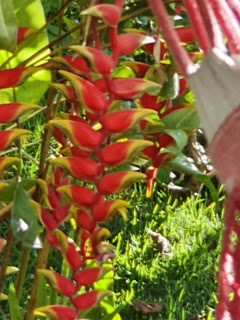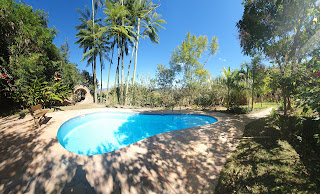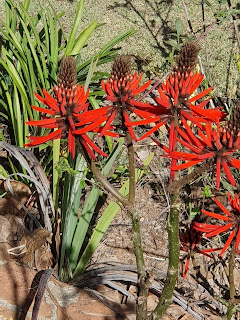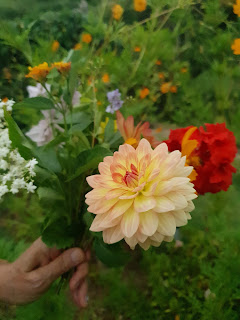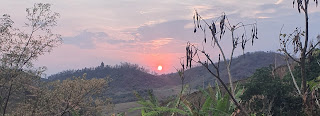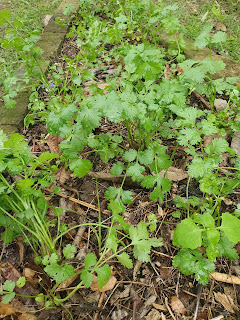Qual a melhor forma de comunicar a verdade: a teologia, a filosofia, a ciência, ou a ?...
A linguagem foi criada para permitir a comunicação, mas muitas vezes a mesma confunde, distorce e engana. Assim é que diferentes formas de linguagem foram criadas, naturalmente ou analiticamente. A corrupção da linguagem sempre foi algo muito alarmante, mas parece que ultimamente se tornou quase epidêmico com a proliferação da fakenews.
O sentido da linguagem e sua relação com um universo cheio de significado é a base de uma vida verdadeiramente humana. Precisamos lutar contra o reducionismo e a falsificação da linguagem. A visão distorcida e inferior da linguagem leva a uma negação dos valores tradicionais, morais, e dos princípios éticos.
A Bíblia nos traz três exemplos extraordinários da importância da linguagem e comunicação. Em Genesis toda Criação foi iniciada pela Palavra do Criador: “Deus disse: faça-se a luz, e a luz foi feita.” Luz é energia, e energia equivale a matéria (se tem dúvida leia Einstein). Na Torre de Babel as línguas foram confundidas para controlar a pretensão humana. Em Pentecostes, as línguas são restauradas ao um entendimento comum de todos.
Nesse processo de comunicação existem muitas formas de expressão para facilitar o entendimento. Em seguida menciono sete formas muito comuns de linguagens que usamos no dia a dia, tentando distinguir suas características, nuances e limitações.
A Teologia, linguagem criada pelo ser humano para traduzir as verdades transcendentais / espirituais implícitas ou reveladas, é uma forma muito comum e defendida pelos religiosos e especialmente os teólogos, que defendem sua preeminência. Teologia é como um mapa criado para pensar e aprender sobre doutrinas religiosas, e, em geral, é baseada na experiência de muitos, mas precisa ter demonstração prática, pois, de outra forma se torna algo vazio. Teologia é útil como direção, mas não como a consumação de nossas viagens. Às vezes, um mapa fica em nosso bolso, mas não diante de nossos olhos como o principal objeto de nossa atenção (é perigoso dirigir focado apenas em um mapa!).
Filosofia é a disciplina com a qual tentamos fazer sentido das coisas ou nosso redor. Filosofia é considerada por muitos como a disciplina das disciplinas, e como uma pré-condição para pensarmos sobre qualquer assunto. Mas a Filosofia carece de um enfoque específico como o da Teologia. Entendemos a Filosofia como tendo uma preocupação abrangente com a realidade e entendimento e, portanto fornecendo insights sobre a interação das coisas e eventos. Essa interação torna as investigações interdisciplinares algo mais do que as multidisciplinares. Para Lewis “Deve existir a boa filosofia, senão por outro motivo, porque a má filosofia deve ser respondida.”
E a Ciência? Não será a linguagem científica a mais efetiva de transmitir a verdade? Certamente a Ciência é hoje a forma mais usada, e com razão a forma mais precisa de conhecermos e fazermos sentido sobre a realidade que nos cerca. Mas precisamos lembrar que nem tudo que é científico é necessariamente verdade e, nem tudo que é verdade pode ser expresso cientificamente. A Ciência usa modelos, e esses modelos estão constantemente sendo atualizados.
E a Metáfora? Essa é parte inerente da natureza da linguagem - - - toda linguagem tem uma origem figurativa e é impossível pensar e escrever de forma significativa sem usar metáforas. Aqueles que se orgulham de serem exatos e que se esforçam para falar abertamente, sem metáforas, sobre as abstrações mais elevadas, serão considerados entre os menos significativos dos escritores. Quem não usa metáforas conscientemente fala sem sentido. Podemos até formular uma regra: o significado de qualquer composição está na razão inversa da crença do autor em sua própria literalidade.
A Alegoria é outra forma de expressão extremamente importante, pois, como Lewis nos ensina histórias alegóricas podem passar por cima de uma certa inibição que nos paralisa grandemente na infância. A obrigação de sentir algo religioso, quando não se sente, congela os sentimentos. Mas trabalhando num mundo imaginário, despojando-o de suas conotações religiosas, podemos ver pela primeira vez a potência real da mensagem. A fantasia tem o poder de atingir todas as idades, independentemente da formação educacional ou habilidade intelectual.
A Mitologia é uma extensão da metáfora e alegoria. Lewis [em Mito Se Tornando em Fato] examina a diferença entre conhecimento e experiência. Embora o intelecto humano seja "incuravelmente abstrato", nossa experiência é sempre concreta e real. Enquanto amamos alguém, suportamos a dor, desfrutamos o prazer, não estamos apreendendo intelectualmente Prazer, Dor ou Personalidade. Este é o nosso dilema - provar e não saber ou saber e não provar... Não podemos estudar o Prazer no momento do abraço nupcial, nem o arrependimento ao se arrepender, nem analisar a natureza do humor enquanto caímos na gargalhada. Mas, para Lewis, o mito fornece uma solução parcial para o dilema. Ao receber o mito como uma história experimentamos concretamente o princípio universal, que de outra forma pode ser entendido apenas como uma abstração. A alegoria apela ao intelecto, mas o mito ao coração.
E se a Filosofia, Teologia, Ciência, Metáfora, Alegoria, e Mitologia falharem, ainda há a linguagem da Poesia, para alguns a forma linguística suprema que nos liga ao amago da vida. Lewis descreve brilhantemente esse relacionamento: “Parece-me apropriado, quase inevitável, que quando aquela Grande Imaginação que no início, para seu próprio deleite e para deleite dos homens e anjos e (em seu modo próprio) dos animais, havia inventado e formado todo o mundo e a natureza, decidiu se expressar através da linguagem humana em forma de Poesia. Pois, a Poesia também é uma pequena encarnação, dando corpo ao que antes era invisível e inaudível”.
Existem muitas outras formas de linguagem: linguagem emotiva, linguagem romântica, linguagem política, linguagem de negócio, linguagem corporal, linguagem referencial, linguagem subjetiva, linguagem abusiva, linguagem acadêmica, linguagem cínica, irreverente, e superficial etc. Precisamos ser fluentes em muitas linguagens, e reconhecer aquelas que são falhas e fakes, e com o treinamento de nossas emoções aprendermos a rejeitar a mentira, amar o que é belo e gradativamente reconhecer e abraçar a Verdade e a Bondade.
Precisamos de uma nova geração de escritores e intelectuais que estejam dispostos a enfrentar as questões do nosso tempo de forma aberta e não preconceituosa e que estejam dispostos a gastar seus talentos na criação de literatura que combine de forma harmoniosa os diversos contornos da linguagem para comunicar o belo, o bom e o verdadeiro.
No fim, no entanto, toda linguagem será insuficiente e nossas questões serão respondias com a locução que fala mais alto que todas: o Silêncio. “Eu sei agora, Senhor, por que você não responde. O Senhor é a própria resposta. Diante de Ti as perguntas perecem. Que outra resposta seria suficiente? Apenas palavras, palavras; uma batalha de palavras contra outras palavras.” [Até que Tenhamos Rostos]
Paulo





























































